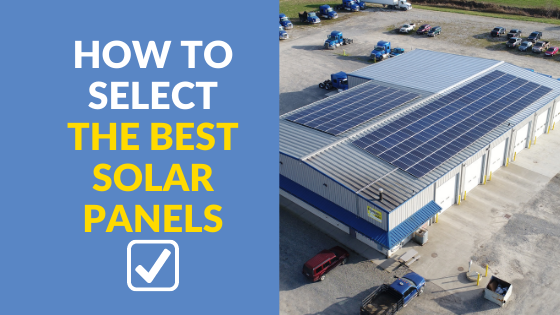
Navigating the Solar Landscape: A Guide to Sustainable Energy Choices
Understanding Your Energy Needs
Selecting the right solar solution begins with a clear understanding of your energy needs. Assess your household or business’s energy consumption patterns and identify the specific areas where solar energy can be integrated to meet those needs.
Evaluate Your Roof’s Solar Potential
One crucial aspect of solar solutions is the suitability of your roof for solar panels. Assess the orientation, tilt, and shading of your roof to determine its solar potential. A well-exposed, unshaded area is ideal for maximizing solar energy capture.
Budget Considerations: Balancing Cost and Quality
Before diving into solar solutions, establish a budget that aligns with your financial capacity. While considering cost is essential, it’s equally crucial to balance it with the quality and efficiency of the solar panels and related components. Long-term savings should be factored into your investment.
Solar Panel Efficiency and Technology
Solar panel efficiency is a key factor in maximizing energy production. Research the latest solar technologies and select panels with higher efficiency ratings. Understanding the different types of solar panels, such as monocrystalline and polycrystalline, can guide you in choosing the most suitable option.
Inverter Selection for Optimal Performance
The inverter plays a crucial role in converting solar energy into usable electricity. Choose an inverter that complements the capacity and technology of your solar panels. Consider inverters with advanced features like maximum power point tracking (MPPT) for enhanced performance.
Warranty and Durability: Long-Term Assurance
Solar solutions are significant investments, and ensuring their longevity is vital. Carefully review the warranty and durability of the solar panels and related components. Opt for products with extended warranties and a proven track record of durability in various environmental conditions.
Local Regulations and Permits
Understanding local regulations and obtaining the necessary permits are essential steps in the solar solution selection process. Research local zoning laws, building codes, and permit requirements to ensure compliance with regulations governing solar installations in your area.
Explore Financing and Incentives
Many regions offer financial incentives, rebates, and tax credits to promote solar energy adoption. Explore available financing options and incentives that can help offset the initial costs of your solar solution. Government programs and incentives can significantly impact the overall affordability of your solar project.
Installation Partnerships: Choosing Reliable Installers
Selecting a reputable solar installer is as crucial as choosing the right components. Research local solar installation companies, read reviews, and ask for references. A reliable installer ensures proper system design, efficient installation, and adherence to safety standards.
Monitoring and Maintenance
After your solar solution is installed, establishing a monitoring and maintenance plan is essential. Regularly monitor energy production, and be proactive in addressing any issues that may arise. A well-maintained solar system ensures optimal performance and longevity.
For a comprehensive guide on how to select solar solutions, visit How to Select Solar Solutions. Empower yourself with knowledge to make informed decisions on integrating sustainable solar energy into your life or business.



